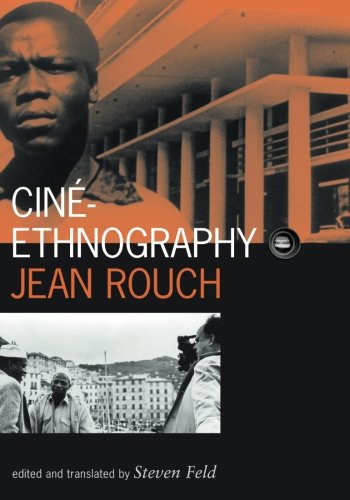Adam Kuper: Culture: The Anthropologists’ Account (2000)
Filed under book | Tags: · anthropology, culture, ethnography

Suddenly culture seems to explain everything, from civil wars to financial crises and divorce rates. But when we speak of culture, what, precisely, do we mean?
Adam Kuper pursues the concept of culture from the early twentieth century debates to its adoption by American social science under the tutelage of Talcott Parsons. What follows is the story of how the idea fared within American anthropology, the discipline that took on culture as its special subject. Here we see the influence of such prominent thinkers as Clifford Geertz, David Schneider, Marshall Sahlins, and their successors, who represent the mainstream of American cultural anthropology in the second half of the twentieth century–the leading tradition in world anthropology in our day. These anthropologists put the idea of culture to the ultimate test–in detailed, empirical ethnographic studies–and Kuper’s account shows how the results raise more questions than they answer about the possibilities and validity of cultural analysis.
Written with passion and wit, Culture clarifies a crucial chapter in recent intellectual history. Adam Kuper makes the case against cultural determinism and argues that political and economic forces, social institutions, and biological processes must take their place in any complete explanation of why people think and behave as they do.
Keywords and phrases
Clifford Geertz, David Schneider, MARSHALL SAHLINS, Lono, Indonesia, Makahiki, ethnographer, abangan, Balinese, Clyde Kluckhohn, Marxist, Talcott Parsons, cockfight, Robert Lowie, Yapese, Edward Sapir, sexual intercourse, Terence Turner, Norbert Elias, Ernest Gellner
Publisher Harvard University Press, 2000
ISBN 0674004175, 9780674004177
Length 299 pages
More info (publisher)
More info (google books)
Melissa Checker, Maggie Fishman (eds.): Local Actions: Cultural Activism, Power, and Public Life in America (2004)
Filed under book | Tags: · activism, anthropology, education, ethnography, human rights, multiculturalism, racial politics
Activism is alive and well in the United States, according to Melissa Checker and Maggie Fishman. It exists on large and small scales and thrives in unexpected places. Finding activism in backyards, art classes, and urban areas branded as “ghettos,” these anthropologists explore the many routes people take to work toward social change.Ten absorbing studies present activist groups across the country — from transgender activists in New York City, to South Asian teenagers in Silicon Valley, to evangelical Christians and Palestinian Americans. Each one examines a social change effort as it unfolds on the ground. Through their anthropological approach these portraits of American society suggest the inherent possibilities in identity-based organizing and offer crucial in-depth perspectives on such hotly debated topics as multiculturalism and the culture wars, the environment, racism, public education, Native American rights, and the Christian right. Moving far beyond the walls of academia, the contributors address the complex issues that arise when researchers have stakes in the subjects they study. Scholars can play multiple roles in the activist struggles they recount, and these essays illustrate how ethnographic research itself can become a tool for activism.
Publisher Columbia University Press, 2004
ISBN 0231128517, 9780231128513
Length 254 pages
More info (publisher)
More info (google books)
Jean Rouch: Ciné-Ethnography (2003)
Filed under book | Tags: · cinema, documentary film, ethnography, film

:One of the most influential figures in documentary and ethnographic filmmaking, Jean Rouch has made more than one hundred films in West Africa and France. In such acclaimed works as Jaguar, The Lion Hunters, and Cocorico, Monsieur Poulet, Rouch has explored racism, colonialism, African modernity, religious ritual, and music. He pioneered numerous film techniques and technologies, and in the process inspired generations of filmmakers, from New Wave directors, who emulated his cinema verite style, to today’s documentarians. Cine-Ethnography is a long-overdue English-language resource that collects Rouch’s key writings, interviews, and other materials that distill his thinking on filmmaking, ethnography, and his own career. Editor Steven Feld opens with a concise overview of Rouch’s career, highlighting the themes found throughout his work. In the four essays that follow, Rouch discusses the ethnographic film as a genre, the history of African cinema, his experiences of filmmaking among the Songhay,and the intertwined histories of French colonialism, anthropology, and cinema. And in four interviews, Rouch thoughtfully reflects on each of his films, as well as his artistic, intellectual, and political concerns. Cine-Ethnography also contains an annotated transcript of Chronicle of a Summer–one of Rouch’s most important works–along with commentary by the filmmakers, and concludes with a complete, annotated filmography and a bibliography. The most thorough resource on Rouch available in any language, Cine-Ethnography makes clear this remarkable and still vital filmmaker’s major role in the history of documentary cinema.”
Edited and translated by Steven Feld
Publisher University of Minnesota Press, 2003
ISBN 0816641048, 9780816641048
400 pages
Key words and phrases
Dogon, Jean Rouch, Sigui, Edgar Morin, Germaine Dieterlen, Marcel Griaule, Michel Brault, Damoure, Pale Fox, Marilou, African cinema, Niger River, Bandiagara, Dziga Vertov, Oumarou Ganda, direct cinema, Niamey, Songhay, Ghana, Treichville
PDF (updated on 2019-10-20)
Comments (2)
